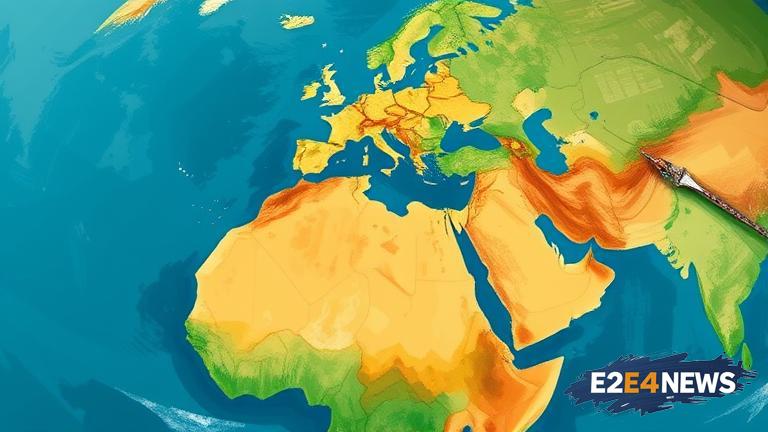The global economic landscape is undergoing a significant transformation, with the Middle East emerging as a crucial player in international trade. This shift is largely driven by the region’s strategic investments in infrastructure, technology, and human capital. Countries such as Saudi Arabia, the United Arab Emirates, and Qatar are at the forefront of this transformation, leveraging their unique geographical locations to facilitate trade between East and West. The region’s growing importance in global trade is also attributed to its vast oil and gas reserves, which have long been a major contributor to the global energy market. However, in recent years, the Middle East has diversified its economy, with a focus on non-oil sectors such as tourism, finance, and logistics. This diversification has not only reduced the region’s dependence on oil exports but also created new opportunities for investment and growth. The Middle East’s strategic location at the crossroads of Europe, Asia, and Africa makes it an ideal hub for international trade. The region’s ports and airports are being upgraded to handle increasing volumes of cargo and passenger traffic, further solidifying its position as a key player in global trade. Moreover, the Middle East is home to some of the world’s most ambitious infrastructure projects, including the Saudi Arabian megacity of NEOM and the UAE’s Masdar City. These projects are not only transforming the region’s urban landscape but also creating new opportunities for businesses and investors. The Middle East’s growing economic influence is also being driven by its young and educated population, which is increasingly embracing entrepreneurship and innovation. The region is home to a number of successful startups, including Careem, which was acquired by Uber in 2019. Furthermore, the Middle East is becoming a popular destination for foreign investment, with many international companies setting up operations in the region. The UAE, in particular, has become a hub for foreign investment, with its business-friendly environment and world-class infrastructure. The country’s free zones, such as Dubai’s Jebel Ali Free Zone, offer a range of incentives and benefits to investors, including tax exemptions and streamlined regulatory processes. In addition, the Middle East is also becoming a key player in the global energy market, with a focus on renewable energy sources such as solar and wind power. Saudi Arabia, for example, has announced plans to generate 50% of its electricity from renewable sources by 2030. The UAE is also investing heavily in renewable energy, with a target of generating 27% of its electricity from clean sources by 2021. Overall, the Middle East’s emergence as a key player in global trade is driven by a combination of strategic investments, infrastructure development, and a growing focus on non-oil sectors. As the region continues to evolve and grow, it is likely to play an increasingly important role in shaping the global economy. The Middle East’s unique blend of traditional and modern culture, combined with its strategic location and growing economic influence, makes it an exciting and dynamic region to watch. With its young and educated population, the Middle East is well-positioned to drive innovation and entrepreneurship in the years to come. As the global economy continues to evolve, the Middle East is likely to remain a key player, driving growth and investment in a range of sectors. In conclusion, the Middle East’s emergence as a key player in global trade is a significant development that is likely to have far-reaching implications for the global economy. As the region continues to grow and evolve, it is likely to play an increasingly important role in shaping the future of international trade and commerce.





